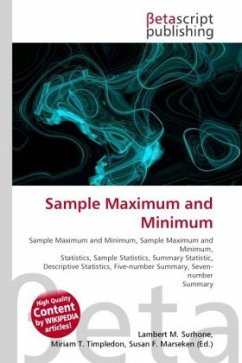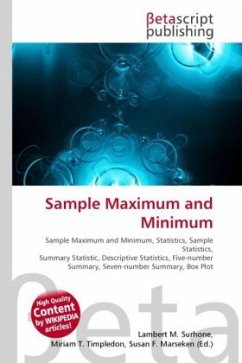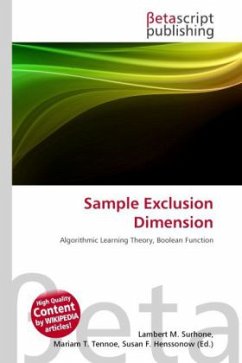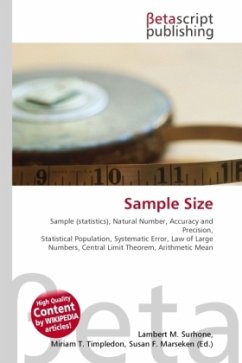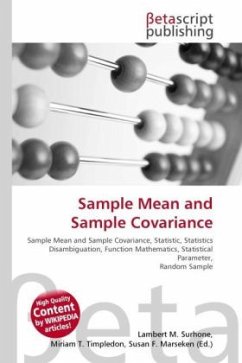High Quality Content by WIKIPEDIA articles! A sample is a subject chosen from a population for investigation. A random sample is one chosen by a method involving an unpredictable component. Random sampling can also refer to taking a number of independent observations from the same probability distribution, without involving any real population. A probability sample is one in which each item has a known probability of being in the sample. The sample usually will not be completely representative of the population from which it was drawn this random variation in the results is known as sampling error. In the case of random samples, mathematical theory is available to assess the sampling error. Thus, estimates obtained from random samples can be accompanied by measures of the uncertainty associated with the estimate. This can take the form of a standard error, or if the sample is large enough for the central limit theorem to take effect, confidence intervals may be calculated.
Bitte wählen Sie Ihr Anliegen aus.
Rechnungen
Retourenschein anfordern
Bestellstatus
Storno

